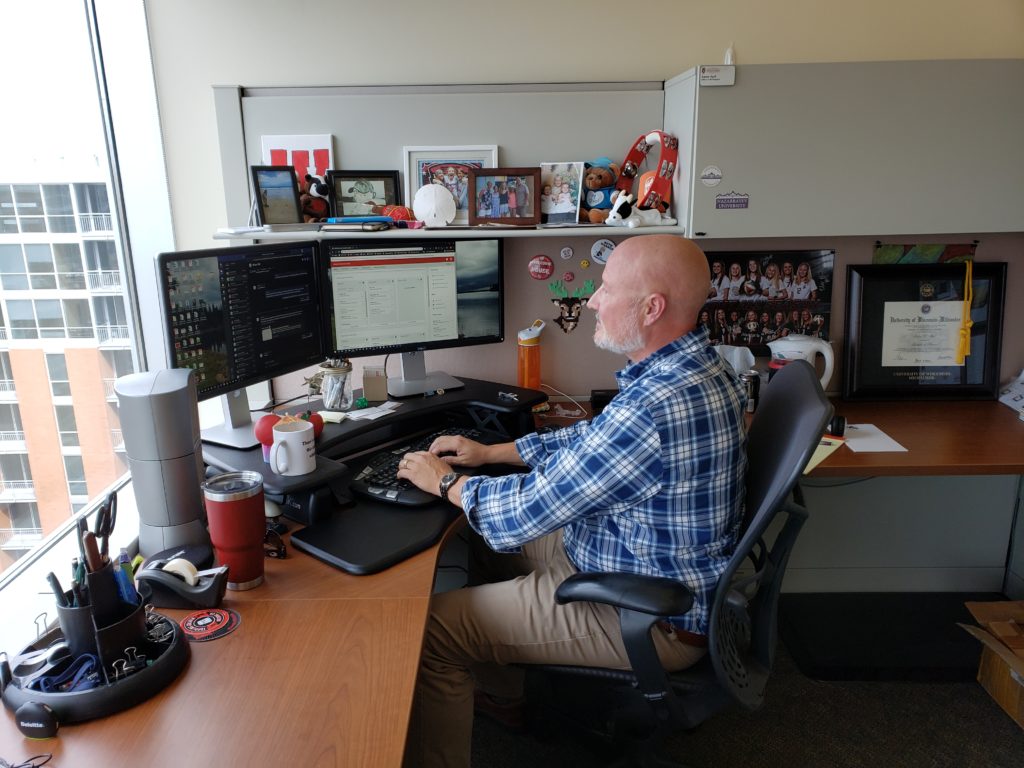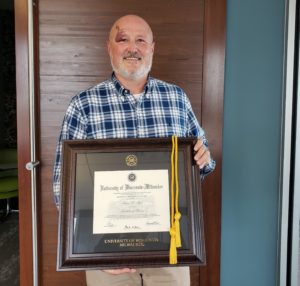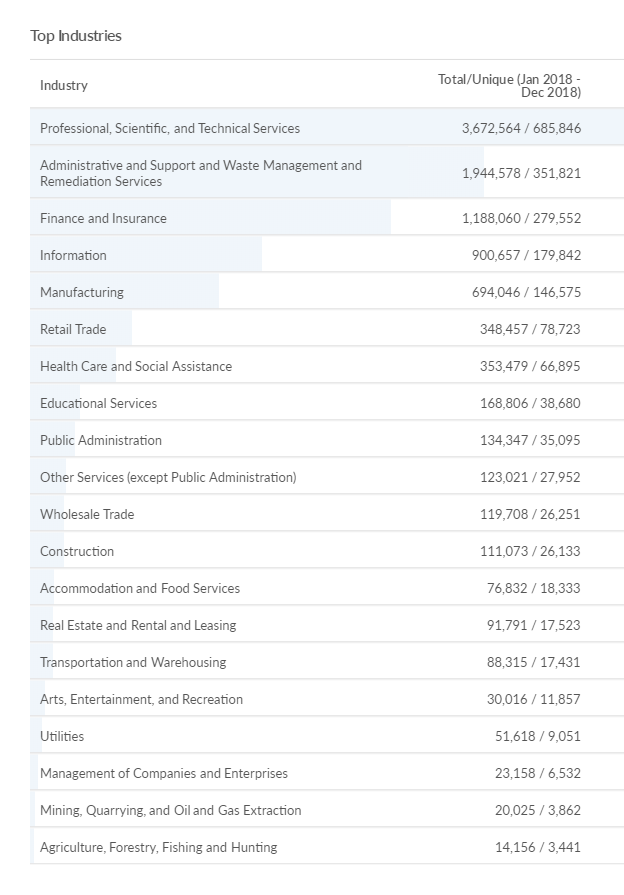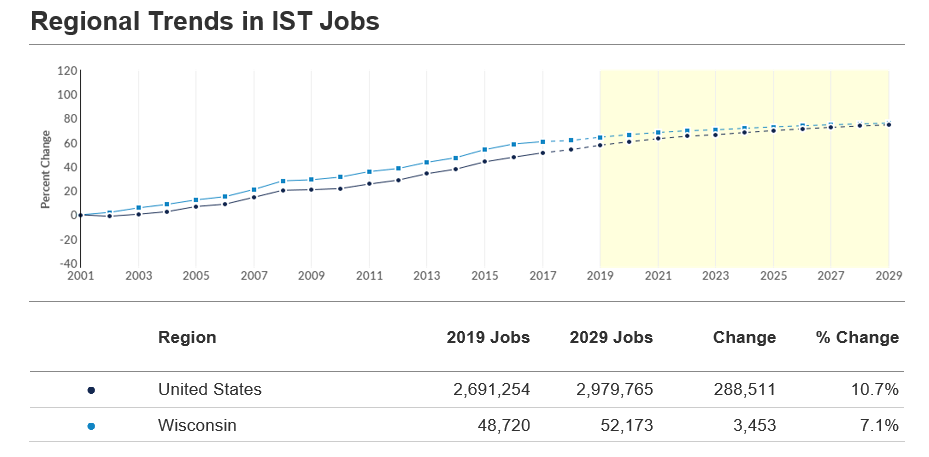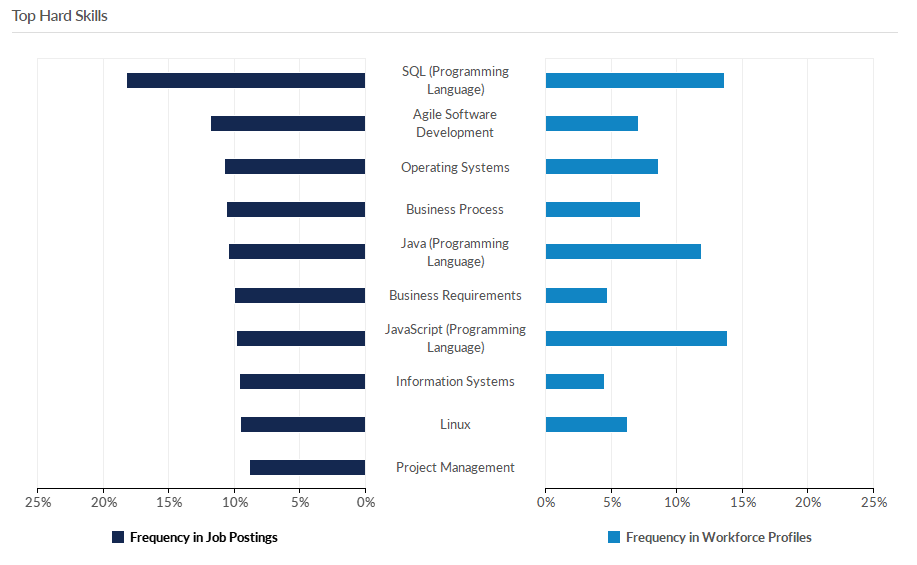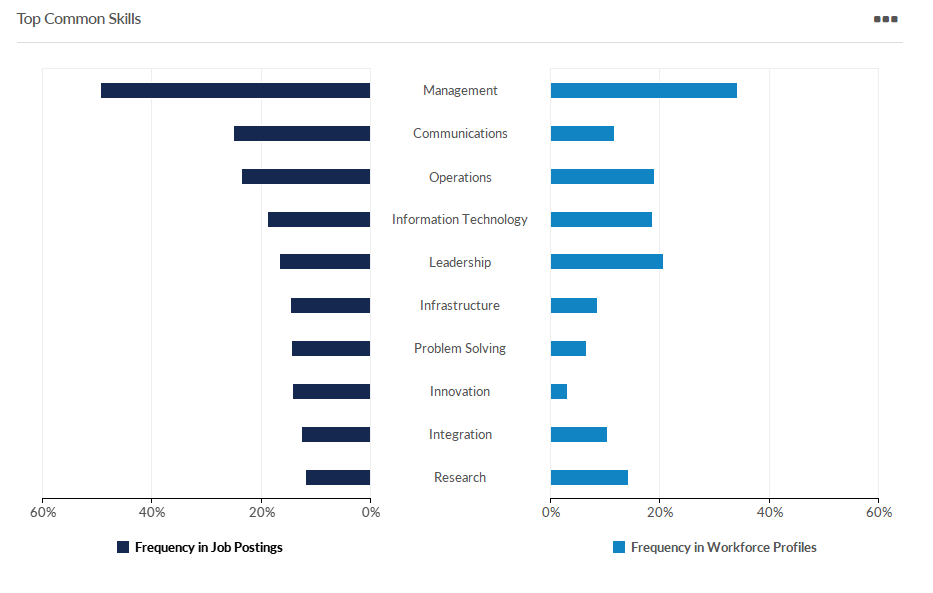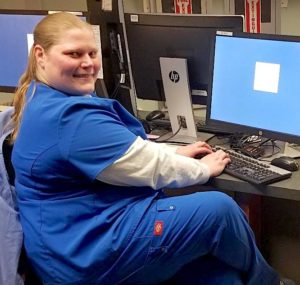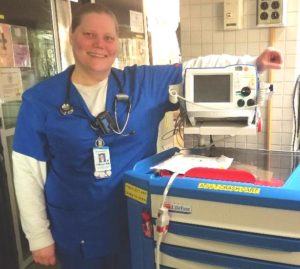You’re a self-motivated learner with some college credit but need a flexible way to earn a degree in order to take that next step in your career—in the business world or another field you find fulfilling. A Bachelor of Science in Business Administration (BSBA) prepares graduates for a wide range of positions in finance, management, marketing, human resources, and more. In general, BSBA graduates use their degree to advance their career, make a career change, or as a stepping stone to a graduate degree—like an MBA.
What is Business Administration?
With a BSBA degree, you will learn fundamental business administration skills that are applicable to nearly every career field. A well-rounded BSBA program focuses on both hard and soft skill sets that expose students to real-world problem solving, interpersonal communication, operational functions, financial tools, and critical and systems thinking principles.
The UW Flexible Option Bachelor of Science in Business Administration degree offers two concentrations to choose from (General Business and Business Analytics) in addition to an Agile Project Management Certificate or Business Analytics Certificate. No matter which concentration or certificate program you choose, you will have a chance to develop specialized skills to excel in a particular area of the business field. Overall, a BSBA degree builds a strong foundation of professional skills that employers from nearly every industry look for in strong job candidates.
Business Administration Jobs and Career Paths

In the business field, the majority of job postings from January 2024 to June 2024 requested that applicants have a bachelor’s degree, compared with an associate degree.
The following job titles and median salaries reflect the common roles BSBA graduates are qualified for:
| Possible Job Titles | Median Salary |
| Accountants and Auditors | $79,880 |
| Budget Analysts | $84,940 |
| Claims Adjusters, Appraisers, Examiners and Investigators | $75,020 |
| Compensation, Benefits, and Job Analysis Specialists | $74,530 |
| Cost Estimators | $74,740 |
| Financial Analysts | $99,890 |
| Financial Examiners | $84,300 |
| Fundraisers | $64,160 |
| Human Resources Specialists | $67,650 |
| Insurance Underwriters | $77,860 |
| Labor Relations Specialists | $89,980 |
| Loan Officers | $69,990 |
| Logisticians | $79,400 |
| Management Analysts | $99,410 |
| Market Research Analysts | $74,680 |
| Personal Financial Advisors | $99,580 |
| Project Management Specialists | $98,580 |
| Purchasing Managers, Buyers, and Purchasing Agents | $77,180 |
*Source: The Bureau of Labor Statistics (2023)
Stacy Prodell is a great example of where a BSBA degree can take you. She is a graduate of the University of Wisconsin-Parkside’s BSBA degree—offered through the UW Flexible Option. When Stacy was promoted from dental assistant to dental office manager, she knew she had to step up to her new role, which meant going back to school.
Right away, Stacy was able to put her coursework into action—using supply and demand models, team management skills, and a critical eye for bottlenecks in her offices’ processes. Now as a BSBA graduate, Stacy has been given more dental offices to manage and feels confident not only to take on her career but to also succeed.
Or, a BSBA can set you up for a graduate degree program, like a Master of Business Administration (MBA), Master of Science in Sustainable Management, or a Master of Science in Healthcare Administration. Antwaun Sanders, a recent MBA graduate from UW-Parkside and recipient of an Outstanding Graduate Award, got his Bachelor of Science Degree in Business Administration from UW Flexible Option.
“What I learned in the BSBA program set me up for the MBA program,” he says. “I had no issues in a lot of courses because of what I learned in the BSBA program. Even if I had decided not to pursue my MBA, I could have gone out into the workforce and pursued other opportunities with the knowledge I gained in the Flex BSBA program.”
Where Business Administration Majors Work
The strength of a BSBA degree is that it prepares you for roles in virtually every industry, including in government and corporate life. Equally, if you are looking to make a career change, a BSBA degree can be the starting point of making that jump.
Rounding out the top five industries in which business professionals work:
- Federal government
- Company and enterprise management
- Consulting services
- State government
- Local government

Business Administration Careers Outlook
If you are wondering how likely you will secure a job as a BSBA graduate, regional and state hiring trends suggest an optimistic future. According to the Bureau of Labor Statistics, overall employment in business and financial occupations is projected to grow faster than the average for all occupations through 2032. About 911,400 openings are projected each year, on average, in these occupations due to employment growth and the need to replace workers who leave the occupations permanently.
You will also have an opportunity to make a higher salary compared with other fields. The median annual wage for this group was $79,050 in May 2023, which was higher than the median annual wage for all occupations of $48,060.

California, Texas, Georgia, Florida, and Washington are among the top states with the biggest estimated increases in business jobs in the next decade. California and Texas will experience an increase of more than 14,700 jobs each, with Georgia at more than 6,000. Washington is expected to increase jobs by nearly 7,000 and Florida by almost 6,000 jobs.
Top Skills in a Business Administration Career
To stand out to employers, you will need a combination of hard and soft skills that highlight your ability to be a team player and your understanding of technical and business operations. Employers are seeking those with common skills like communication, leadership, problem solving and research. They’re also seeking individuals with specialized skills, including marketing, project management, data analysis, and finance.

An Online Business Administration Degree at Your Own Pace
In addition to common skills, employers are also looking for professionals with specialized skills, including project management, data analysis, analytics, and finance. With the newly launched concentrations for the UW Flexible Option BSBA, you can choose the path that works for you. With General Business, build a solid foundation in the functional areas of business and prepare for a variety of positions across industries. In the Business Analytics concentration, students gain the analytical skills to lead change and solve complex business challenges by converting data into strategic insights.
An Online Business Administration Degree at Your Own Pace
Accredited through the Higher Learning Commission (HLC) and the Association to Advance Collegiate Schools of Business International (AACSB)—the leading business accrediting body in the world—the University of Wisconsin-Parkside Bachelor of Science in Business Administration degree offered through UW Flexible Option, features a project-based curriculum that establishes graduates who are equipped to succeed in the fast-paced world of business.
Offered 100% online, you will progress toward your degree at your own pace by demonstrating mastery of applicable skills and knowledge. Graduates of the program will be positioned for a variety of roles through the skillsets they learn and strengthen. At a glance, the program will prepare you to:
- Apply financial tools and techniques to meet organizational objectives
- Evaluate scenarios that impact an organization and respond using diverse communication strategies
- Employ critical and systems thinking principles to create an integrated multi-functional strategy to meet organizational objectives
Explore the UW Flexible Option Bachelor of Science in Business Administration curriculum, tuition, and admissions process.






